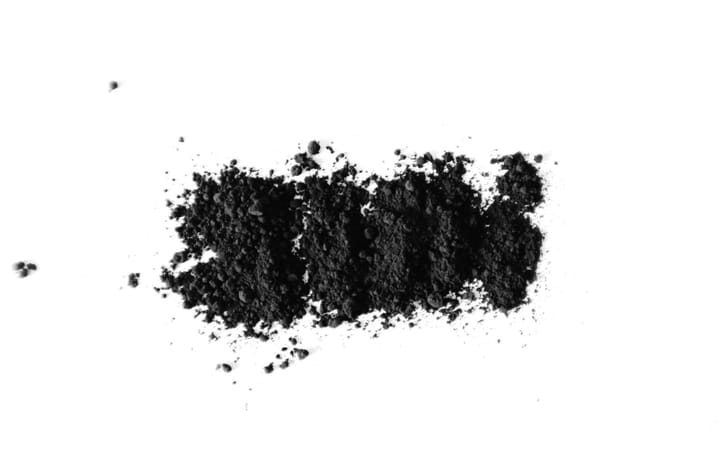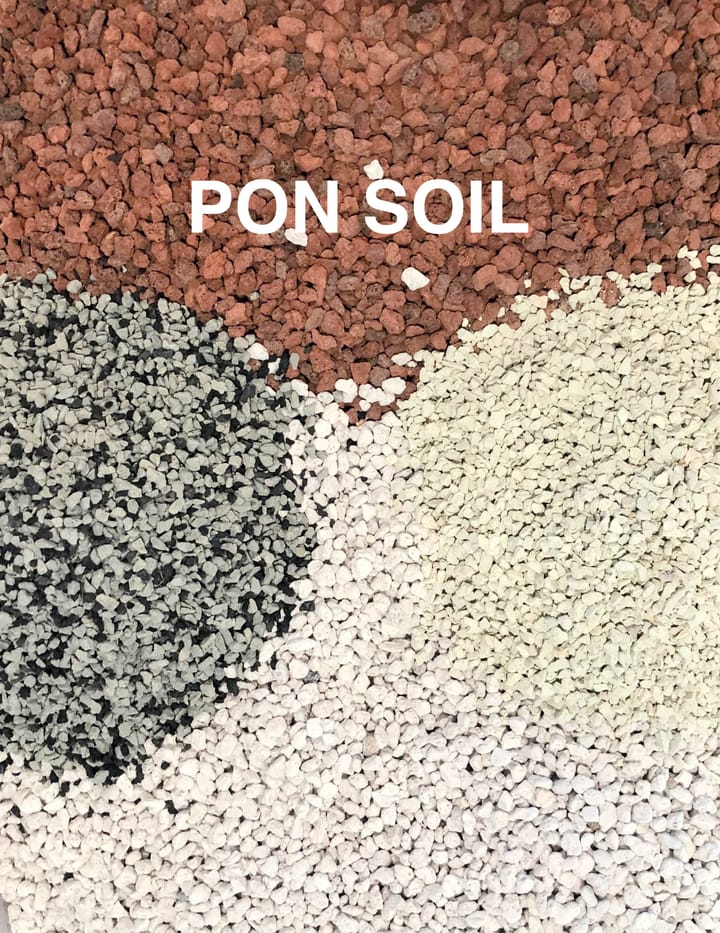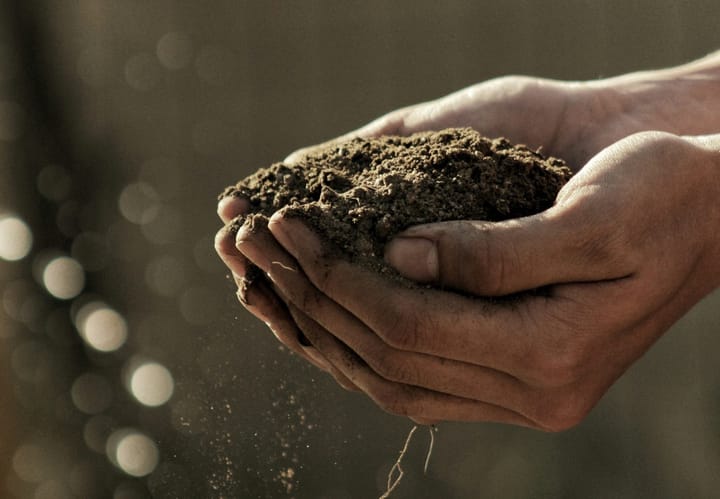Kelp Fertilizer for Gardening
Kelp fertilizer is derived from a type of seaweed that is known for its rapid growth in oceanic environments.

This marine resource, packed with valuable nutrients, is making its way into gardens as an organic amendment.
It serves as an all-natural solution, offering a sustainable alternative to synthetic fertilizers.
When applied to the soil, kelp promotes healthier plant growth by providing an array of minerals and vitamins, improving soil structure, and enhancing moisture retention.

The use of organic fertilizers like kelp aligns with sustainable gardening practices. It supports the ecological balance by releasing nutrients slowly and over time, mitigating the risk of run-off and pollution.
Moreover, kelp’s role doesn’t just stop at nutrition; it helps in boosting plant resilience against diseases and environmental stress. Regular application can lead to sweeter fruits, larger vegetables, and an abundance of flowers owing to its concentration of natural growth hormones and trace elements.
Key Takeaways
- Kelp fertilizer brings organic, sustainable nutrition to gardens, enhancing plant health and soil structure.
- Its application improves yield, disease resistance, and the longevity of blooms in flowering plants.
- Kelp products represent a natural, eco-friendly alternative to chemical fertilizers and are easy to integrate into various gardening practices.
Benefits of Kelp Fertilizer
Kelp fertilizer offers a host of benefits, delivering essential vitamins and minerals for plant health while being an eco-friendly choice for your garden.
Nutritional Content
Kelp is rich in nutrients that are beneficial for plant growth. It contains over 70 different minerals, including nitrogen, potassium, and trace minerals that are essential for the healthy development of plants. Kelp also provides vitamins and growth hormones which can enhance both the root and foliage development of your garden plants.
- Key Nutrients Found in Kelp:
- Nitrogen
- Potassium
- Micronutrients (e.g., Iron, Zinc)
- Vitamins (e.g., A, B1, B2, C, D, E)
- Hormones (e.g., Cytokinins, Gibberellins)
Plant Health and Growth
By integrating kelp fertilizer into your gardening routine, you can expect a marked improvement in plant health and growth. Kelp facilitates enhanced resilience to disease and environmental stress, which can lead to healthier, more robust plants. Regular use promotes:
- Sweeter tasting fruits
- Firmer vegetables with improved texture
- Increased flower production
- Extended shelf life for produce
Environmentally Friendly Options
Opting for kelp fertilizer supports organic gardening practices. As a renewable resource, kelp is harvested without damaging the environment, making it a sustainable and environmentally friendly choice. Using organic kelp fertilizer minimizes your gardening carbon footprint and contributes to a healthier ecosystem.
Understanding Kelp Meal and Powders
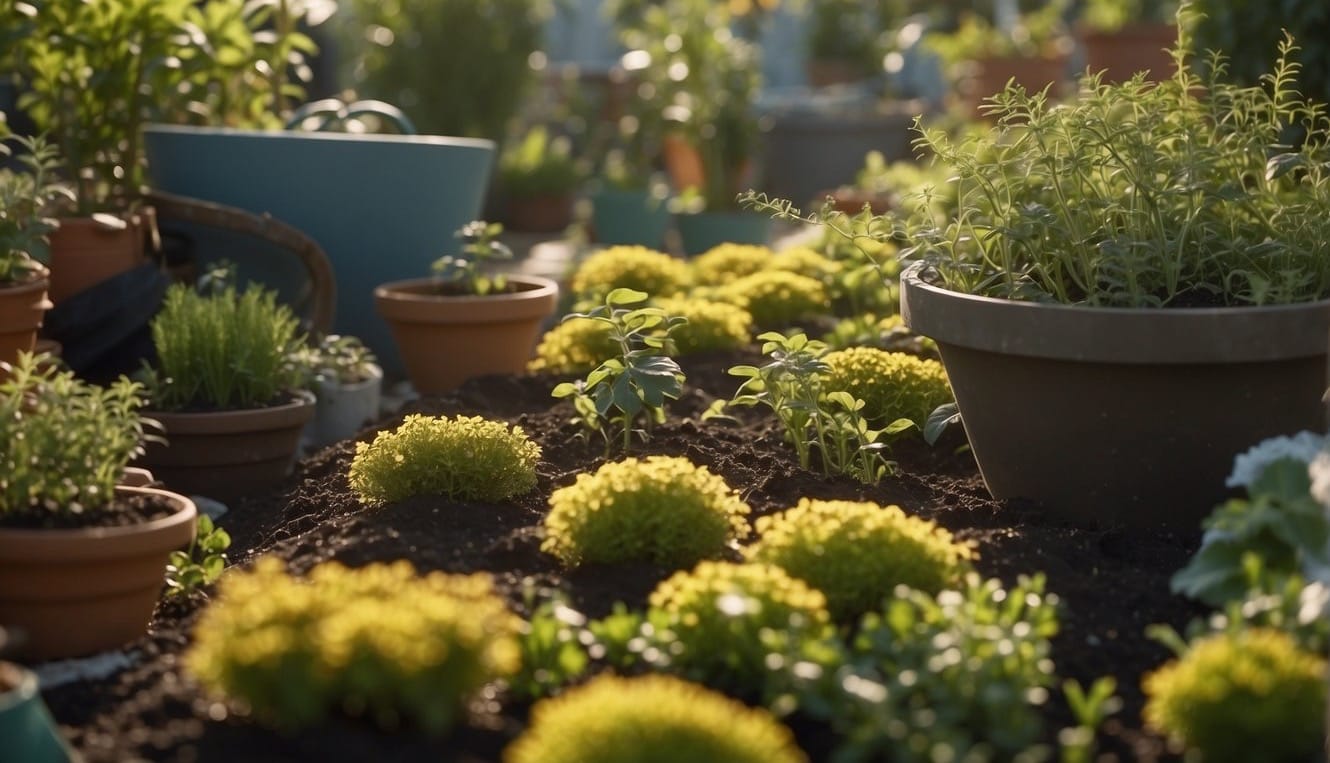
In the realm of organic gardening, kelp meal and powders play a crucial role in providing plants with essential nutrients. Derived from seaweed, these products are key to promoting healthier growth.
What is Kelp Meal?
Kelp meal is a granulated form of Ascophyllum nodosum, a type of marine algae that is harvested, dried, and then ground into a powder. As a soil amendment, you apply it directly to the soil, where it releases nutrients gradually.
The average application rate is about one pound of kelp meal per 100 square feet of soil. The breakdown process typically starts after four months, implying that an early application is advantageous. Your plants benefit from kelp meal because it’s:
- High in trace minerals
- Low in NPK (Nitrogen, Phosphorus, Potassium) values
Types of Kelp Powders
Kelp powders refer to kelp meal that has been processed into a finer consistency. There are different types of kelp powders, including those suitable for making liquid fertilizers. Here’s a quick overview of the powders:
- Kelp Powder for Solutions: This ultra-fine powder is mixed with water to create a spray solution or added to irrigation systems for quick uptake by plants. The typical NPK ratio for these solutions is 1-0-4.
- Edible Kelp Powders: Although not directly related to gardening, it’s worth mentioning that some kelp powders are intended for human consumption, given their high mineral content.
When handling kelp powders for your gardening needs, you’ll typically mix them with soil or water based on the manufacturer’s recommendations. They are noted for:
- Providing a quick source of nutrients
- Being soluble and thus applicable through foliar spraying
How to Apply Kelp Fertilizer
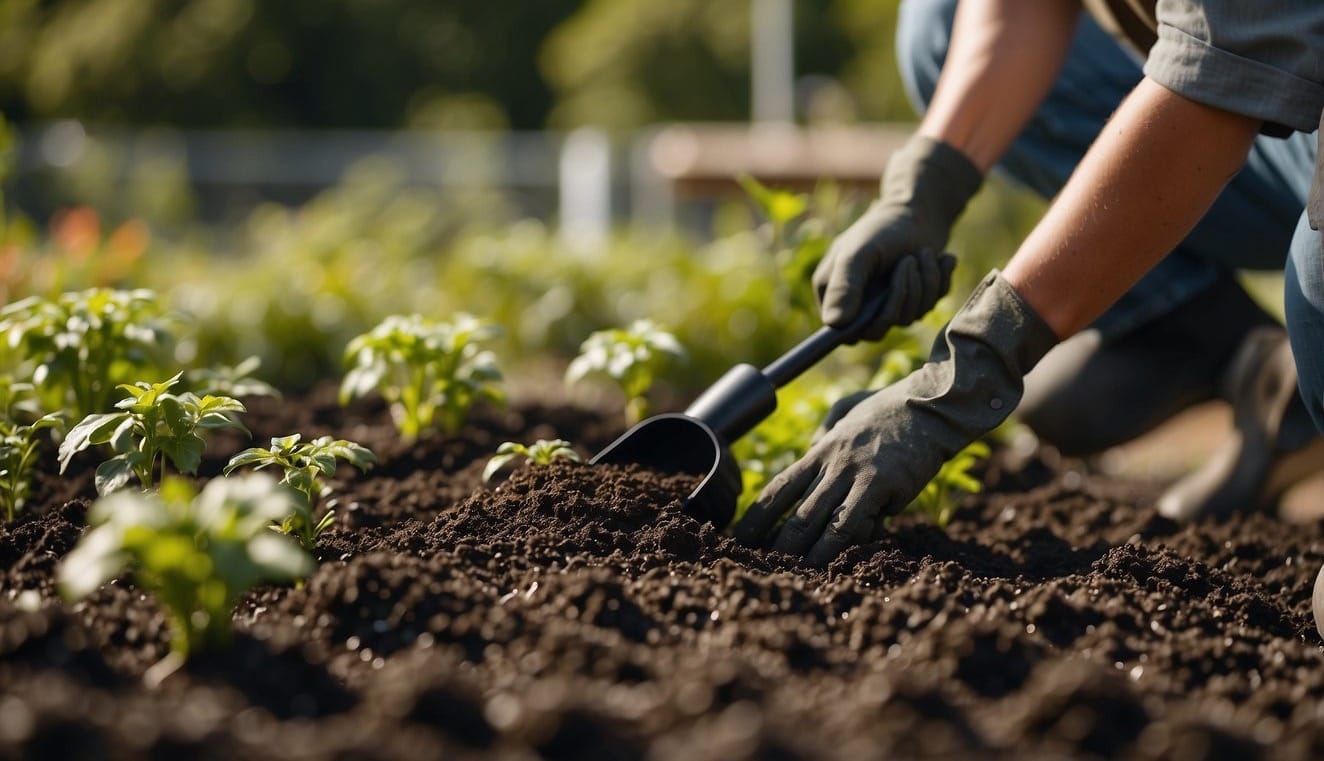
Kelp fertilizer offers an array of nutrients that can benefit your garden when applied correctly. It is essential to understand the appropriate methods for soil and foliar applications to ensure optimal plant health and growth.
Soil Application
When applying kelp meal to the soil, it is crucial to distribute it evenly. Use the following steps:
- Measure: Begin by measuring the appropriate amount of kelp meal based on the manufacturer’s instructions.
- Mix: For individual plants, mix the kelp meal with the top layer of soil around the plant base. When preparing beds, you can incorporate the meal into the soil before planting.
- Side Dress: To side dress, sprinkle the kelp meal around the stem of your plants, extending to the drip line, and gently work it into the soil.
- Mulch: After applying, cover the area with mulch to help maintain soil moisture and aid in the slow release of nutrients.
- Water: Irrigate the area with your usual irrigation system to help the soil absorb the kelp meal.
Foliar Application
A foliar application of liquid kelp fertilizer ensures nutrients are quickly available to your plants through their leaves.
- Prepare: Dilute liquid kelp as instructed by the product label.
- Spray: Use a sprayer to mist the diluted solution onto the leaves of your plants, covering both the tops and undersides of the leaves.
- Timing: The best time for foliar application is early morning or late afternoon to avoid direct sunlight and reduce evaporation.
- Frequency: Apply every 2-4 weeks or as recommended by the fertilizer label, especially during peak growth phases.
When transplanting, a gentle coat of kelp solution on the roots can help reduce transplant shock. Always adhere to product-specific guidelines to avoid over-fertilization.
Comparing Kelp with Other Organic Fertilizers
As you explore organic fertilizers for your garden, understanding the distinguishing features of kelp compared to other options like fish products and compost is crucial for maximizing plant health.
Kelp vs. Fish Products
Kelp Fertilizer:
- Rich in iodine, potassium, and other minerals
- Often available in powder or meal form
- Low in salts, minimizing the risk of plant burn
Fish Products (such as fish meal and fish emulsion):
- High in nitrogen, which is essential for plant growth
- May have a stronger odor compared to kelp
- Potential risk of over-fertilization and nitrogen burn if not applied carefully
When deciding between kelp and fish-based fertilizers, consider the specific needs of your plants. If you’re aiming for a balanced nutrient supply with a focus on minerals like potassium and iodine, kelp could be your preferred choice. However, for a nitrogen boost, fish products might suit you better.
Kelp vs. Compost
Kelp Fertilizer:
- Concentrated source of trace minerals
- Quick to apply as it doesn’t need to decompose
- Generally odorless and easy to store
Compost:
- A diverse range of nutrients due to the variety of organic matter it contains
- Improves soil structure along with providing nutrients
- Requires time to decompose fully before it releases nutrients to the soil
While compost’s slow release of nutrients ensures a long-term feeding, kelp provides immediate nutrient availability. Your preference should be guided by the urgency of your plants’ nutrient requirements and your soil’s existing condition. If immediate mineral supplementation is necessary, choose kelp. For gradual overall soil improvement, compost is the better option.
Optimizing Plant Growth and Yield
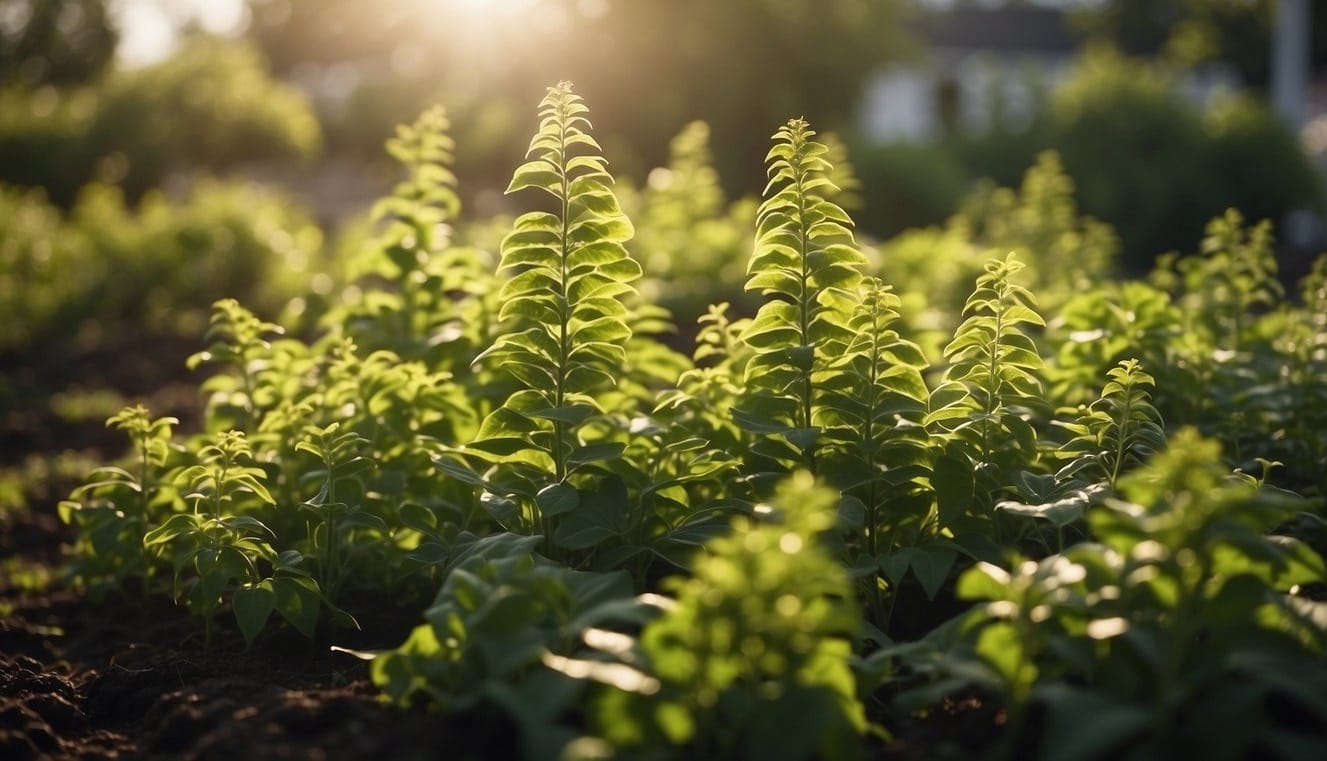
Kelp fertilizer is a cornerstone for gardening success, particularly for enhancing root development and boosting crop yields. Rich in essential nutrients and natural plant hormones, it elevates the growth rates and resilience of your plants.
Enhancing Root Development
Kelp fertilizer is known for its high content of natural growth hormones such as auxins and cytokinins. These hormones are crucial in:
- Stimulating cell division: This leads to more robust root systems which are essential for nutrient uptake.
- Promoting root growth: Healthier roots anchor your plants better and access deeper soil nutrients.
Incorporating kelp fertilizer into your soil can result in more vigorous and extensive root networks. This foundation is essential to support healthy plant growth above ground.
Boosting Crop Yields
If you're looking to maximize your garden's productivity, employing kelp meal can be transformative, effectively:
- Enhancing growth rates: Kelp contains gibberellins and cytokinins, which collectively work to speed up cell division and elongation.
- Increasing yields: Fruits and vegetables treated with kelp often grow larger and maintain firmness for longer.
For direct application:
- Mix kelp meal into the soil before planting.
- Apply as a top dressing around established plants during the growing season.
This practice encourages plants to not only grow larger but also to produce more abundantly. Use kelp fertilizer to unlock the full potential of your garden crops.
Kelp for Specialty Gardens
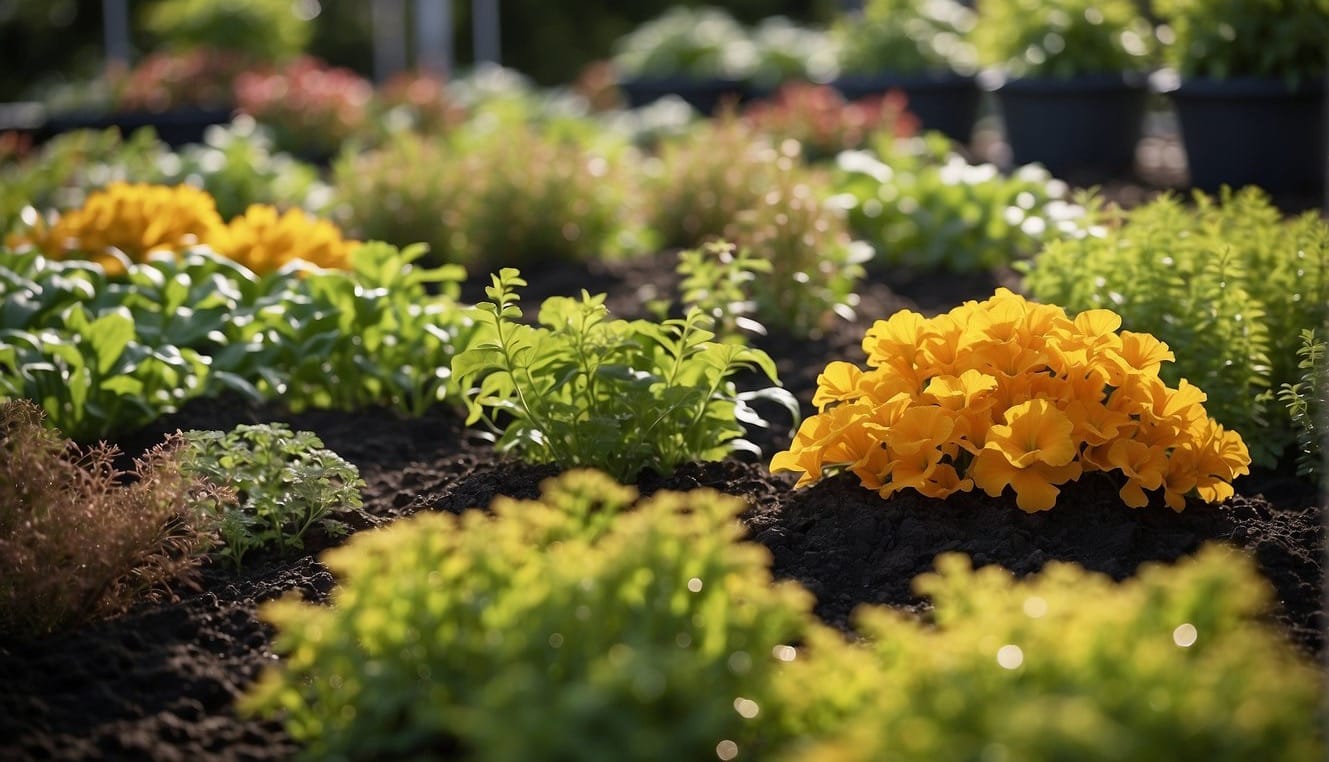
Kelp fertilizer offers comprehensive benefits, especially suited to the nuanced demands of specialty gardens, whether you are nurturing a variety of vegetables or carefully tending to your indoor botanicals.
Vegetable Gardens
When you apply kelp fertilizer to your vegetable gardens, you are not only encouraging robust growth but also enhancing the quality of the yield. The nutrients in kelp support your vegetables in several specific ways:
- Sweetness in Fruit: The use of kelp fertilizer can result in sweeter tasting fruits from plants such as tomatoes, enriching their natural flavors.
- Size and Texture: Vegetables like cucumbers and peppers often attain larger sizes and boast a firmer texture, which is desirable for both culinary and aesthetic purposes.
- Disease Resistance: Kelp contributes to an increase in your plants' resistance to diseases, offering a healthier and more bountiful vegetable garden.
Houseplants
Your houseplants can also thrive with the addition of kelp fertilizer to their care routine. Here's how kelp can make a difference:
- Flower Production: If you're growing flowering houseplants, kelp can promote more abundant and vibrant blossoms.
- Transplant Shock Reduction: Kelp can ease the transition for houseplants experiencing transplant shock, helping them to establish more quickly in their new environment.
- Root Growth: An application of kelp encourages stronger root development, which is fundamental for healthy and stable houseplants.
By integrating kelp into your gardening practices, your specialty gardens can achieve not just vigorous growth but also attain plants that are resilient, rich in flavor, and visually striking.
Natural Alternatives to Chemical Fertilizers
As you seek to nurture your garden, consider the advantages of natural alternatives to chemical fertilizers. These options, such as kelp seaweed, provide vital nutrients while fostering organic gardening principles and potentially integrating with hydroponic systems.
Avoiding Harmful Chemicals
By choosing natural fertilizers like kelp seaweed, you avoid introducing potentially harmful chemicals into your garden. Kelp is a source of over 70 essential minerals and vitamins, which are derived from ocean nutrients and can substantially benefit plant health. Unlike synthetic fertilizers, which may contain hazardous substances, kelp fertilizer offers a sustainable and eco-friendly solution. It avoids the by-products or environmental damage linked to chemical options.
Main benefits of kelp seaweed:
- Rich in essential nutrients
- Environmentally friendly harvesting
- Absence of synthetic chemicals
Adopting Organic Practices
Incorporating kelp into your gardening practices aligns with an organic approach. Kelp can serve as an effective fertilizer in soil-based and hydroponic systems due to its comprehensive nutritional profile. It is known to provide improved growth outcomes for a variety of plants.
Kelp fertilizer in organic gardening:
- Offers nitrogen, phosphorous, and potassium
- Can be used in soil-based and hydroponic systems
- Supports sustainable farming practices
Sourcing and Purchasing Kelp Products
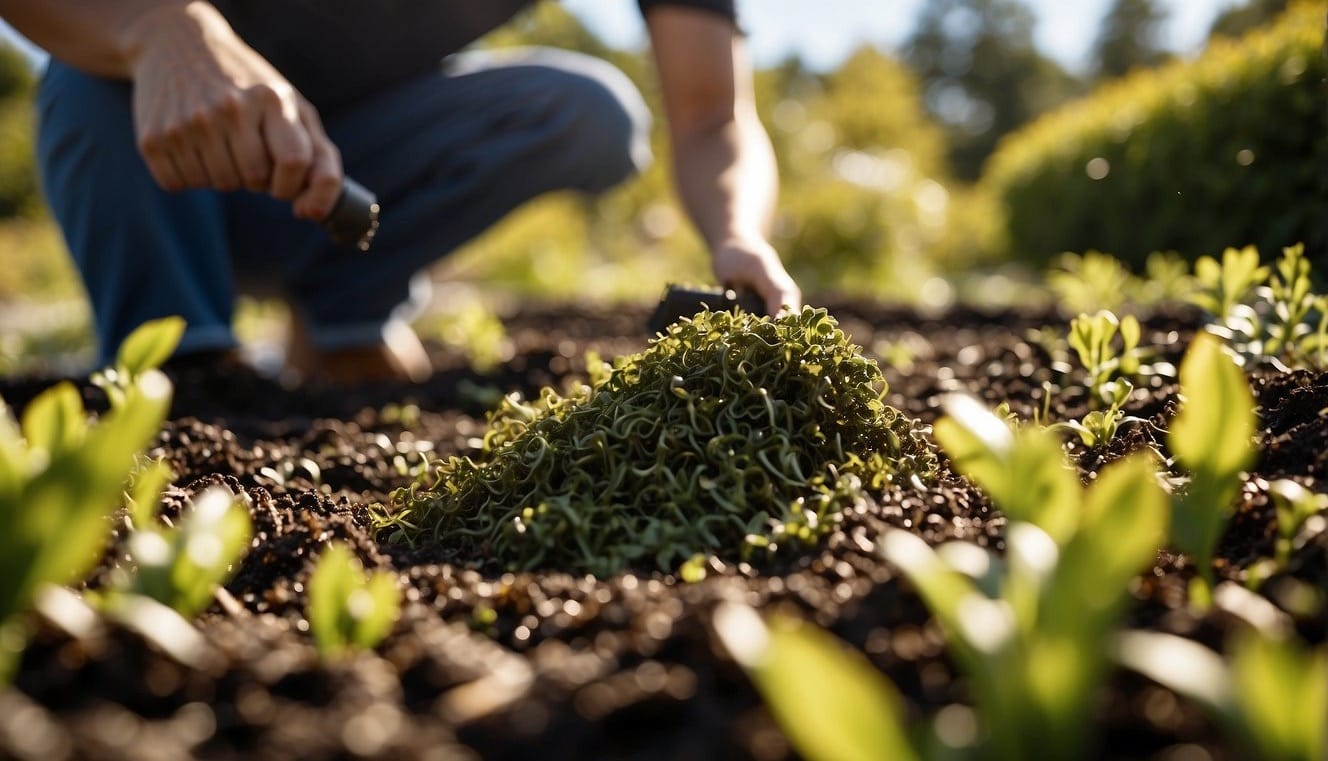
When integrating kelp products into your gardening routine, it's essential to consider both the source of the product and where you can purchase them. Quality and accessibility are crucial for effective use.
Selecting Quality Kelp Fertilizer
When selecting kelp fertilizer, ensuring its quality is paramount. Look for products that are specifically labeled as organic to ensure they contain the beneficial nutrients kelp is known for. Also, consider whether you prefer liquid kelp extract for plants or kelp meal fertilizer; the former is usually applied directly to foliage, while the latter is mixed into the soil.
Qualities of premium kelp fertilizer:
- Clear indication of being harvested sustainably
- Rich in essential nutrients and growth hormones
- Free from contaminants and pollutants
Finding Kelp Products in Stores
You can locate kelp fertilizer and related products at your local garden store or home improvement centers. Many retailers stock a variety of seaweed fertilizers, including kelp-based options.
How to find kelp fertilizer in stores:
- Check the inventory online before visiting to ensure availability.
- Look in the organic or specialty fertilizer sections.
- Ask a store associate for assistance if you're not finding the options.
Frequently Asked Questions
In this section, you'll find comprehensive answers to common queries about using kelp fertilizer in your garden to improve soil health, optimize plant growth, and ensure cost-effective gardening practices.
How can kelp fertilizer improve my garden's soil health?
Kelp fertilizer contributes to your garden’s soil health by enhancing soil structure and promoting beneficial microbial activity. Its natural plant hormones and minerals help stimulate root development and improve nutrient uptake.
What are the application instructions for liquid kelp fertilizer?
To apply liquid kelp fertilizer, dilute it with water as directed on the product label and use it as a foliar spray or soil drench during your plants' growing season. Regular application, as specified by the manufacturer, will yield the best results.
Which types of plants in my garden will benefit the most from kelp meal?
Vegetables, fruits, and flowering plants tend to respond well to kelp meal, often displaying improved vigor and yield. Kelp meal is also effective for plants that are under stress or in need of a nutrient boost.
How does kelp fertilizer compare with other organic fertilizers in terms of NPK content?
While kelp fertilizer generally has a lower NPK ratio compared to other organic fertilizers, its unique blend of trace minerals and growth hormones makes it an invaluable soil amendment for promoting plant health and resilience.
Can kelp fertilizer boost the growth and yield of tomato plants?
Yes, kelp fertilizer can significantly boost the growth and fruit yield of tomato plants. Its nutrients and growth-promoting hormones aid in producing robust plants and larger, more flavorful tomatoes.
What are the cost considerations when choosing kelp fertilizer for my gardening needs?
Kelp fertilizer may initially seem costlier than synthetic options. However, its concentrated nutrient profile and long-term benefits to soil health present a cost-effective solution.
Assess the upfront cost against the potential savings from reduced need for other soil amendments. Also, consider the healthier, higher-yielding plants that kelp fertilizer can help produce.
